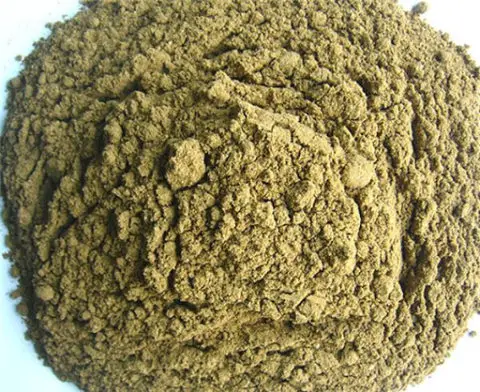Poultry require dietary plans rich in protein so as to facilitate development, productivity and maintain health. For this reason, fish meal is a crucial part of chicken dietary plan. Fish is popular for its high protein value, hence the ideal supplement for poultry feed. There are 2 basic sources of fish meal for chickens. Fish can be caught for the sole purpose of feeding birds for example herring, menhaden, and pollack. The second source is fisher waste which is a by-product of processing fish caught specifically for human consumption, for example salmon and tuna. Fish meal for chickens can be provided as a feed additive or feed supplement. Note that fish meal is unstable thus must be supplemented by an antioxidant for quality preservation. As such, farmers are advised to strictly adhere to the provided guidelines when providing fish meal for chickens.
Table of Contents
Characteristics of Fish Meal
Fish meal is basically dried, ground tissue of under composed whole fish or fish cuttings. It can be provided with or without the extraction of oil. Fishmeal is made from small sea fish for example herring, menhaden and anchovies. It is highly favoured by most farmers due to its high nutritional value. It is rich in protein, energy, minerals including calcium and phosphorus. It is also a natural source of vitamins including choline, biotin and vitamin B12, A and E as well as the micronutrients, selenium and iodine. An important point to note is that various types of fish meal for chicken vary in terms of nutritional value and so farmers should be cautious of the fish type selected. It is therefore advisable to choose white fish which is normally found near the sea or lake floor. These include chub, trout, lake bass, cod, pollack, whiting, grouper, hake, snapper and tilapia. Fish meal should contain a maximum of 3% salt. An over dose accumulates in the liver and kidneys adversely impacting the health of chickens. In addition, fish meal should constitute 3.9% of the chicken dietary plan. A common challenge experienced by farmers when using fish meal is quality. Fish meal for chickens is normally preserved by ethoxyquin. However, this preservative is not allowed under organic production in most countries. To add on, cat fish can carry high levels of contaminants such as heavy metals and antibiotics so must be avoided. Commercially made fish meal for chickens may contain high levels of mercury and radiation which can affect the health of chickens and the quality of the eggs and meat. If not used appropriately, fish meal may result in lower life expectancy, hence the need to strictly follow the recommended dietary plan.
Benefits of Fish Meal for Chickens
Despite these disadvantages, fish meal is highly beneficial to birds provided the recommended guidelines are met. Fish meal for chickens is highly recommended as it contains nutrients that help in growth, productivity and health of birds. The following are the nutritional benefits of fish meal:
- High protein content and good protein quality – used efficiently in the development of chickens.
- Rich source of the essential fatty acids – to help reduce disease, improve the immune status of birds thereby promoting their health which in turn leads to increased productivity.
- Natural source of anti-oxidant vitamins and selenium – to promote good health, protect cell membranes and improve immune status.
- Rich source of calcium, phosphorus and other minerals – contributes significantly to bone development among other biological functions.
Health Benefits
Fish meal has been proven to enhance the health of chickens. In fact, diets with fish meal have been shown to reduce infection and promote health leading to increased productivity and reduced losses thus enabling a successful agricultural venture. Fish meal contains omega 3 which improves the immune system of birds. As such, chickens are able to withstand rampant diseases and infection. Furthermore, omega 3 found in fish meal helps to control inflammatory conditions. According to the agricultural community, chickens that are fed fish meal tend to be more resistant to diseases compared to their counterparts. The vitamins and minerals found in fish meal act as antioxidant agents thereby protecting birds from oxidative stress that does not only affect health but the taste and colour of the meat as well. Minerals found in fish meal also help to maintain and protect cell membranes. Fish meal contains trace elements necessary for the health of chickens. Farmers usually ignore trace elements requirements as effects are not instant but develop over time. However, it is important to understand that a deficiency in trace elements leads to suppressed immune system, poor feathering and dermatitis, infertility and poor shell quality. In severe cases, performance is reduced and birds can even die.
Productivity
The growth of chickens largely depends on the amount of protein available. For this reason, fish meal for chickens is important in achieving desired carcass weights. It has been proven that the amino acid constituents of proteins plays a significant role in growth, egg production, adaptation to the environment, and in many other biological functions. Also, lysine found in fish meal has a major impact on improving carcass quality of chickens by supporting formation of type fast glycolytic fibres. Threonine has a significant metabolic role and so helps regulation of GI secretions and endogenous losses, thereby improving digestibility of nutrients and preventing digestive disorders. GI secretions are enzymes and fluids which aid in the liberation of nutrients from food, as well as mucus which facilitates transport of food down the alimentary tract. Fish meal provides high levels of calcium and phosphorous which is of the essence in bone development. Take care not to over dose fish meal as an excess of phosphorous can lead to slipped tendons and crooked bones.
Conclusion
Fish meal is considered a traditional source of protein for chicken diets in most parts of the world. Fish meal for poultry averages 58 to 72% protein and 1280 to 1550 kcal/kg of energy. Therefore, its nutritional value is essential for animal health and productivity. It also helps to balance essential amino acids in poultry feed, particularly methionine and lysine. Note that the composition of fishmeal will vary depending on the species of fish used, the method with which it is processed, and whether or not the fillets are removed prior to processing. Although fish meal is highly recommended, farmers should ensure that it is not provided in excess. Fish meal that is above 5% of the overall chicken dietary plan is not recommended as it can transfer a fishy flavour to the meat.

